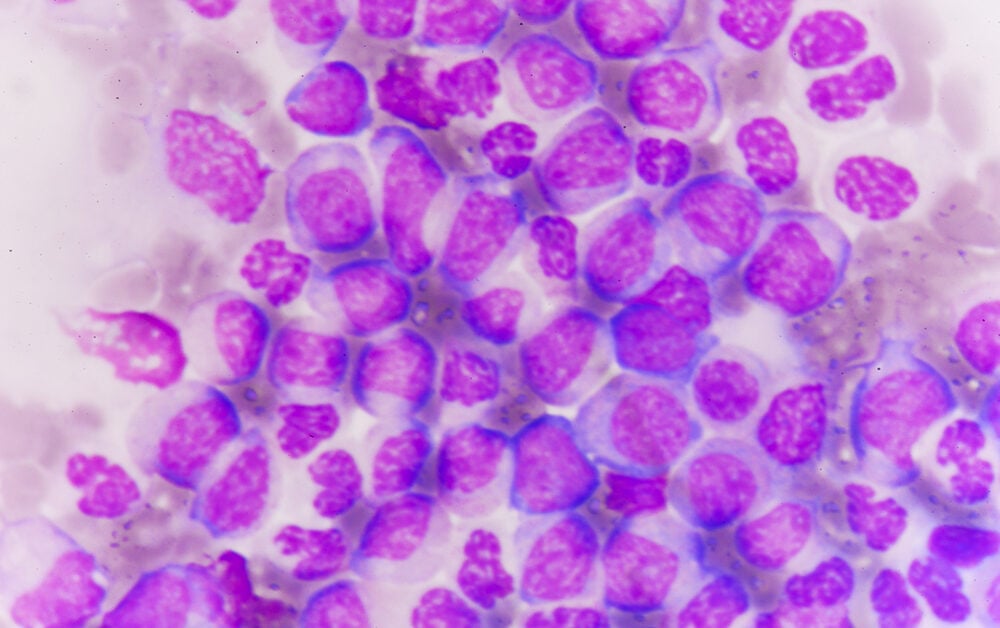Newsletter Signup - Under Article / In Page
"*" indicates required fields
Moleculin Biotech, Inc., a clinical stage pharmaceutical company with drug candidates targeting hard-to-treat tumors and viruses, has published data from its completed MB-105 European phase 1 clinical trial assessing the safety and efficacy of annamycin as a single agent for the treatment of adults with relapsed or refractory acute myeloid leukemia (AML).
‘Results of a Phase 1 Study of Liposomal Annamycin for the Treatment of Relapsed or Refractory AML Patients After Induction Therapy’ was published in the Journal of Cancer Research.
The authors of the published manuscript include Wolfram Dempke (Moleculin’s European chief medical officer), John Paul Waymack (Moleculin’s senior chief medical officer) and Waldemar Priebe (Moleculin’s chair – scientific advisory board), as well as Polish investigators from the MB-105 trial.
Walter Klemp, chairman and CEO of Moleculin, said: “This early data provided an important foundation for our AML program and was informative for guiding our clinical development strategy for Annamycin in combination with Cytarabine for the treatment of AML. We continue to be very optimistic about annamycin’s potential to provide a non-cardiotoxic treatment option for patients.”
About Moleculin’s MB-105 study
MB-105 is the company’s completed multicenter, open-label, dose-escalation study, which was conducted to determine the maximal tolerated dose (MTD) and recommended phase 2 dose (RP2D) of annamycin as a single agent for the treatment of patients with AML after induction therapy. A total of 20 subjects between 24 and 76 years with a median age of 64.5 were enrolled across five clinical trial sites in Europe. The median number of prior therapies for all subjects was four (range 1-18). Of the 20 subjects enrolled, 17 received the full three consecutive days of dosing per protocol.
80% overall response rate
As previously announced, the final MB-105 results aligned with the overall safety profile of annamycin and observations made in previously completed and ongoing clinical studies evaluating annamycin. Additionally, as detailed in the paper, among the eight subjects treated in the final dosing cohort (240 mg/m2), five were evaluable for efficacy and there was one PR (partial response) and three CRi (complete response with incomplete recovery of peripheral blood count) among these five subjects, representing an 80% overall response rate (ORR) in the last cohort.
For purposes of this clinical trial, a CR means that the subject’s bone marrow blasts reduced to 5% or less (with CRi meaning a CR where there was incomplete recovery of white blood cell and/or platelet counts), and a PR means the subject’s bone marrow blasts reduced by 50% and resulted in a blast count of 25% or less.
Annamycin demonstrated no evidence of cardiotoxicity based on review of cardiotoxicity biomarkers, LVEF, and ECHO GLS evaluation. These properties differentiate the drug from all other anthracyclines that have shown limited or no cardiotoxicity to date and highlight it as a very promising anticancer agent. It retains the ability to poison TOPO-IIα (topoisomerase II) and can also overcome mdr-1-related resistance mechanisms in leukemic blasts, as shown in its parent compound.
Based on the safety and dosage data from the two successfully concluded phase 1 trials, Moleculin started its ongoing phase 1/2 trial evaluating annamycin in combination with cytarabine (Ara-C) for the treatment of subjects with AML who are refractory to or relapsed after induction therapy (MB-106).
Annamycin currently has Fast Track Status and Orphan Drug Designation from the U.S. Food and Drug Administration (FDA) for the treatment of soft tissue sarcoma lung metastases and the treatment of relapsed or refractory AML.






